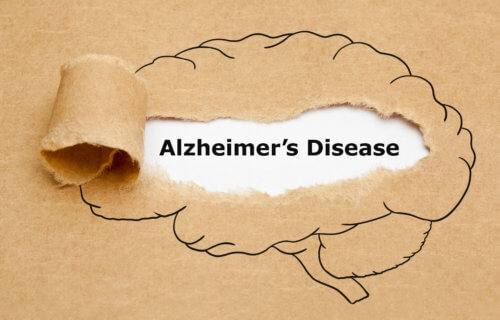TORONTO, Ontario — A pilot program in Canada is revealing the stunning benefits of radiation therapy for patients with Alzheimer’s disease. Researchers from Baycrest’s Rotman Research Institute (RRI) say treatments of low-dose radiation to the brain resulted in significant improvements in both behavior and cognitive abilities for three older adults with severe cases of the disease.
“The primary goal of a therapy for Alzheimer’s disease should be to improve the patient’s quality of life. We want to optimize their well-being and restore communication with family and friends to avoid social isolation, loneliness and under-stimulation. Although the study was a small pilot and should be interpreted with caution, our results suggest that low-dose radiation therapy may successfully achieve this,” says Dr. Morris Freedman, senior study author and head of neurology at Baycrest, in a media release.
The pilot study is following up on a 2015 case involving an Alzheimer’s patient living in hospice care. After receiving several treatments of radiation, the woman displayed such a significant improvement in her condition she was actually discharged from the hospice facility. Mental ability, speech, movement, and appetite all improved due to the brain treatments. While there is still no proven cure for Alzheimer’s, the most common form of dementia, the patient was able to move into a long-term care home for older adults.
How can radiation benefit the brain of Alzheimer’s patients?
Study authors say this is a tricky procedure, since high doses of radiation can be devastating to human health. Low doses, however, are common in medical procedures like a CT scan and may even help the body repair itself.
“Numerous neurological disorders, including Alzheimer’s disease, are thought to be caused in part by oxidative stress that damages all cells, including those in the brain. We have natural protection systems to combat the damage, but they become less effective as we get older. Each dose of radiation stimulates our natural protection systems to work harder – to produce more antioxidants that prevent oxidative damage, to repair more DNA damage and to destroy more mutated cells,” explains lead author Dr. Jerry Cuttler, a retired Atomic Energy of Canada scientist.
Cuttler has been studying the effects of radiation on human health for more than 25 years. In this study, researchers followed four patients with severe Alzheimer’s through three low-dose radiation treatments.
Doctors at Sunnybrook Health Sciences Centre administered these treatments every two weeks using a CT scanner. Study authors then used standard cognitive tests and observations from family members to measure the changes in communication and behavior. Specifically, the patients’ children, spouses, and caregivers collected photos and videos of their loved one’s progress during the pilot program.
Stunning turnaround for Alzheimer’s patients
In three of the four patients, researchers say noticeable improvements appeared within just one day of their first treatment. The patient’s relatives add they showed increased alertness, were more responsive, and could recognize familiar faces better. These three individuals were also moving better, participated in more social activities, and had a generally better mood after treatment.
“When I said hello, she looked at me and said, ‘Hello dear.’ She hadn’t said this to me in years!” the son of one patient reports.
“I had an amazing visit with my dad this evening. I’m speechless from last night. He was excited to see me – he spoke to me right away and gave me multiple kisses – real kisses like years ago. He was clapping his hands to the music. My mom agreed it’s been years since he has done this. Everyone is amazed,” the daughter of another patient adds.
Researchers say this could be a breakthrough in treating severe cases of Alzheimer’s and for reuniting patients with their families. They caution, however, that the results come from a very small trial size with other limitations as well. Specifically, the study did not include a placebo group scientists could measure the radiation group’s results against.
Study authors say future work with radiation will look at its effects on Alzheimer’s degeneration with much larger groups.
The study appears in the Journal of Alzheimer’s Disease.
